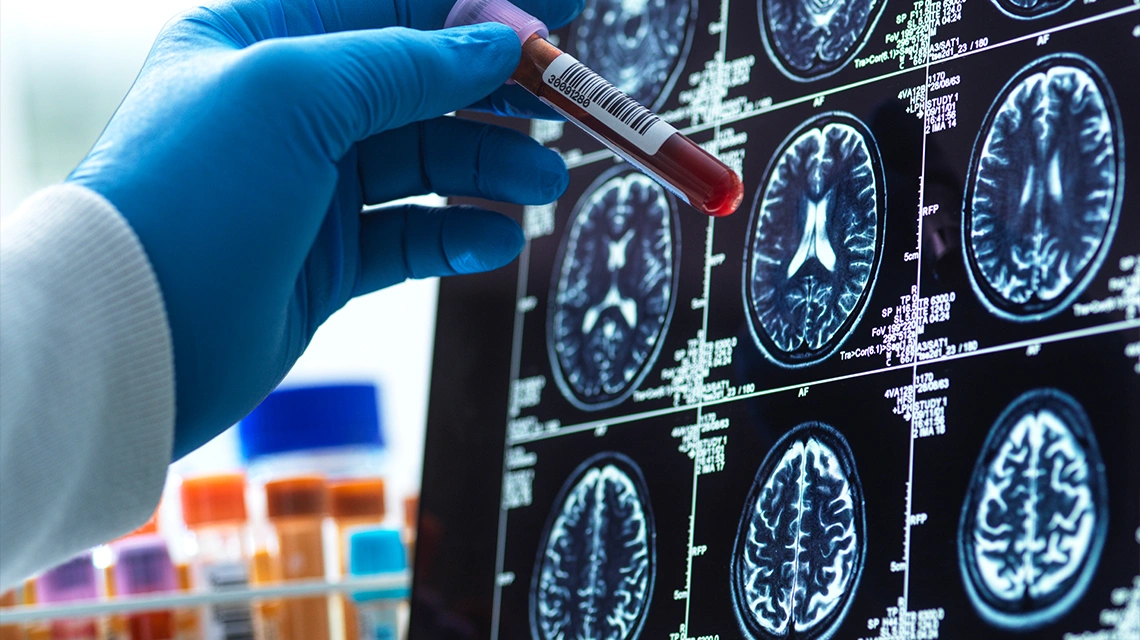Неврологични лечения
Neurological diseases affect the central and peripheral nervous systems and are often progressive and difficult to treat. Conditions such as Alzheimer’s disease, Parkinson’s disease, multiple sclerosis (MS), stroke, and spinal cord injuries can significantly reduce an individual’s quality of life. In modern medicine, current treatments for these disorders are mostly limited to symptom management. However, stem cell therapies have emerged as a promising alternative in this field due to their potential to regenerate damaged nerve cells.

The Role of Stem Cells in Neurology
Stem cells form the foundation of regenerative medicine due to their ability to transform into different cell types and repair damaged tissues. In neurological disorders, stem cells capable of differentiating into neurons and glial cells (such as astrocytes, oligodendrocytes) are commonly used. These cells support neurological recovery not only by generating new nerve cells but also by modulating the immune system and reducing inflammation.
Major Neurological Diseases with Therapeutic Potential
Alzheimer’s Disease: Alzheimer’s is characterized by the progressive loss of nerve cells in the brain. Stem cell treatments may contribute to maintaining or improving cognitive functions by supporting the generation of new neurons in brain tissue. Research also suggests that stem cells could help reduce amyloid plaques and neuroinflammation.
Parkinson’s Disease: Parkinson’s results from the loss of dopamine-producing neurons. Stem cells may allow the regeneration of these neurons. Clinical trials report positive outcomes where mesenchymal stem cells improve motor functions and slow disease progression through cellular regeneration.
Multiple Sclerosis (MS): MS is an autoimmune disease where the immune system attacks the myelin sheath surrounding nerve cells. Stem cell therapy offers benefits by modulating the immune response and regenerating myelin-producing cells. Autologous hematopoietic stem cell transplantation (AHSCT) has shown disease regression in some severe MS cases.
Stroke: Stroke-related brain damage can lead to permanent motor and cognitive deficits. Stem cell therapies may promote the repair of brain tissue and accelerate recovery by reducing inflammation.
Spinal Cord Injuries: Traumatic spinal cord injuries can cause significant functional loss. Stem cell therapies aim to reestablish neuronal connections in the spinal cord. Experimental studies indicate improvements in mobility and nerve conduction.
Types of Stem Cells Used
Embryonic Stem Cells (ESC): Have high differentiation potential; subject to ethical and safety debates.
Induced Pluripotent Stem Cells (iPSC): Genetically reprogrammed cells that can be transformed into neurons in the lab.
Mesenchymal Stem Cells (MSC): Derived from connective tissue and known for their immunomodulatory properties.
Neural Progenitor Cells: Specialized stem cells that can directly differentiate into nerve cells.
Treatment Methods
Intrathecal Administration: Direct injection into the spinal cord.
Intravenous Administration: Provides systemic distribution via the bloodstream.
Surgical Implantation: Experimental placement of cells directly into the damaged area.
Scientific Evidence and Clinical Research
Stem cell therapies for many neurological diseases are still in the experimental stage, but international clinical data are promising. While some treatments have not yet been approved by regulatory bodies like the FDA and EMA, controlled trials have shown positive results. These therapies should be performed in experienced centers within ethical frameworks.
Conclusion
Stem cell therapies hold groundbreaking potential in the treatment of neurological disorders. By supporting nerve cell regeneration, modulating the immune system, and reducing inflammation, they can serve as a complementary or alternative option to current treatments. As more clinical trials are completed in the future, the widespread application of these therapies may become a reality.














